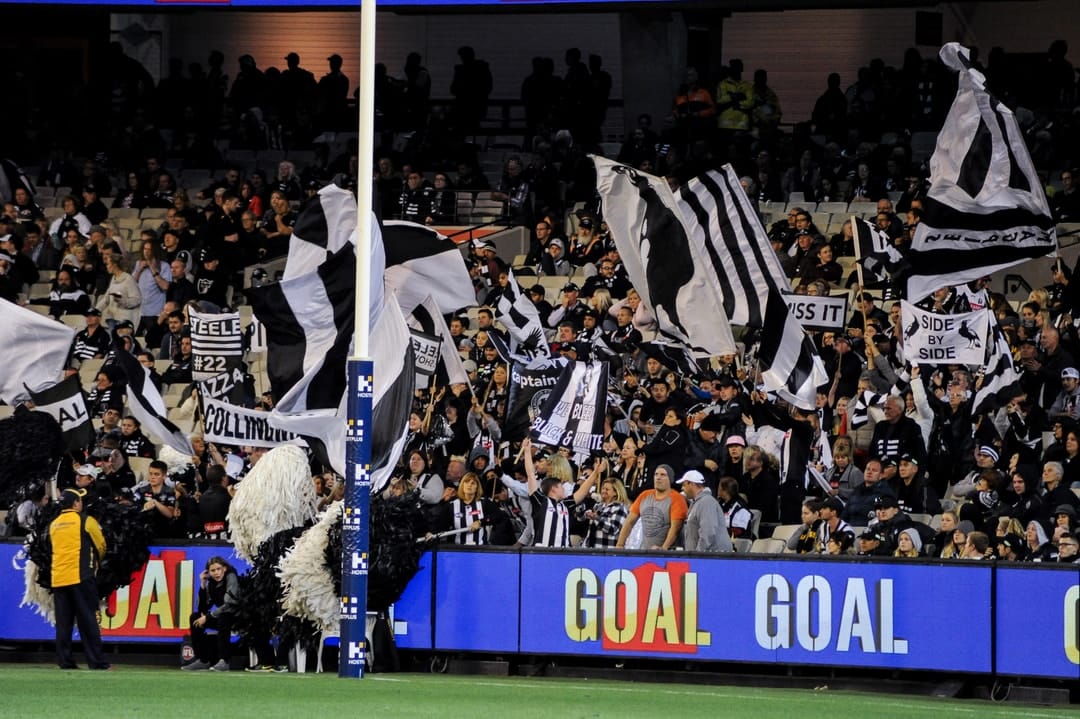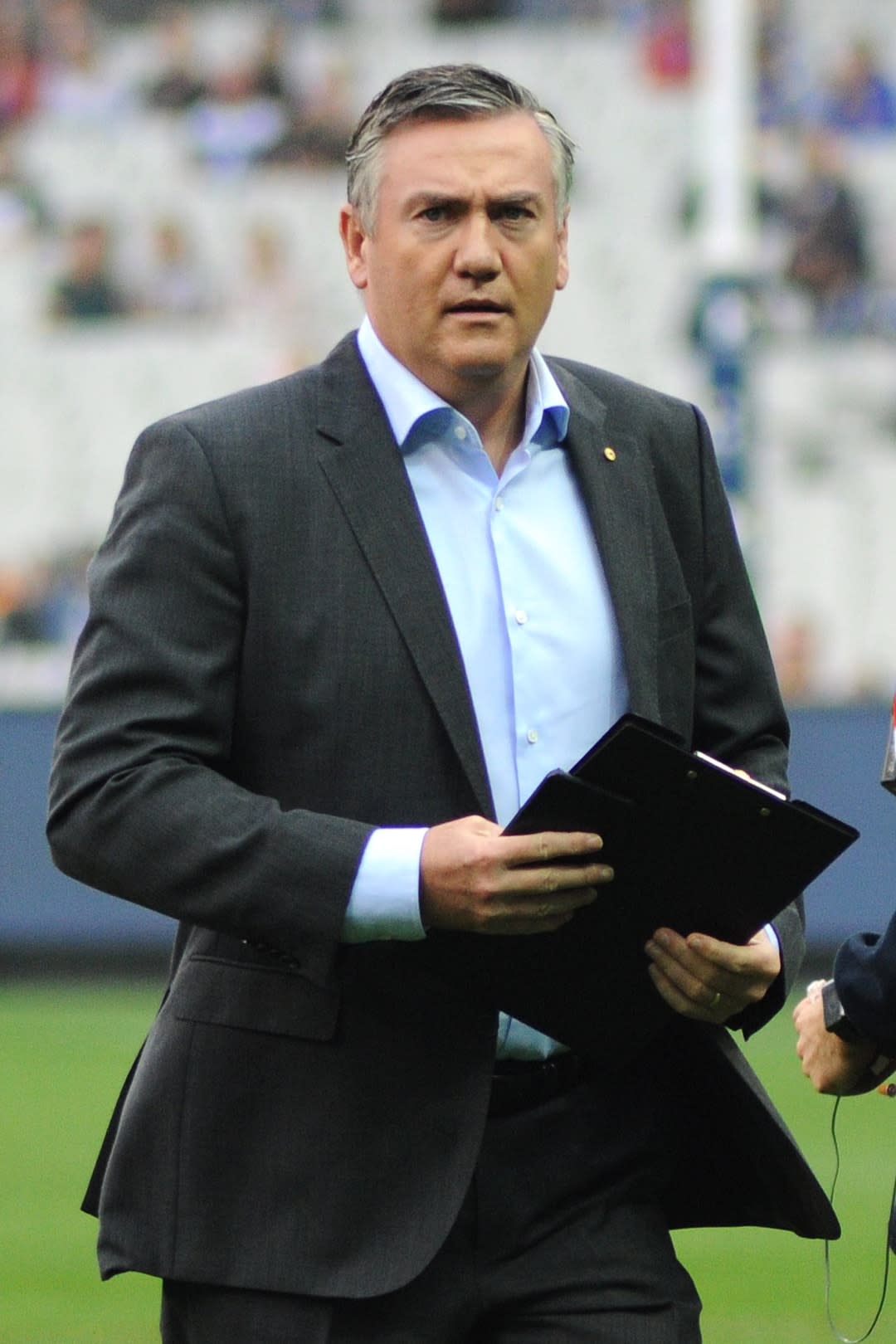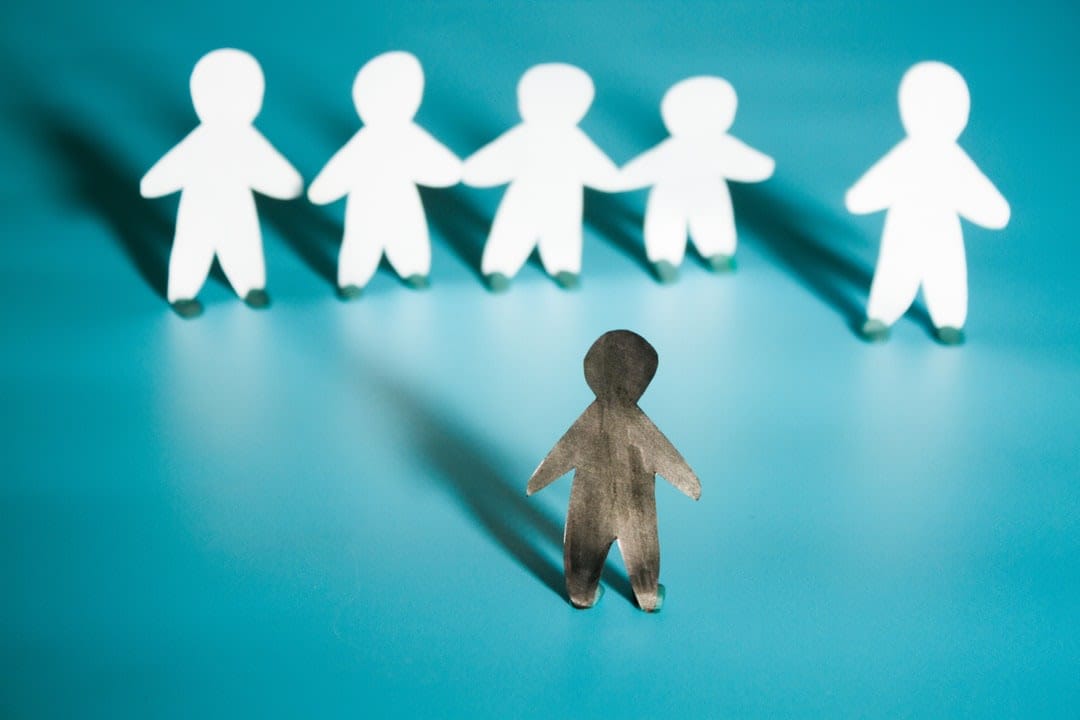
The independent and damning review of AFL club Collingwood that was recently leaked to the media revealed that the club was guilty of systemic racism. The report described Collingwood’s history with racism as "distinct and egregious", and demanded that its leadership take action to change the club’s culture.
Yet it became obvious at the following press conference that the club’s leadership had no intention of making any substantive changes. Indeed, club president Eddie McGuire said, somewhat unbelievably, that the release of the report was "a historic and proud day for the Collingwood Football Club".
This has resulted in a minor media backlash critiquing the remarks as misguided political spin, and McGuire was forced to apologise, yet he did not immediately fall on his sword.

It then became apparent that this was another day of shame and inaction for the AFL. The Collingwood Football Club board did not expel McGuire, or even censure him.
The AFL chief executive, Gillon McLachlan, who was in a position to make a decisive stand against systemic racism, also failed to do so. In contrast, McLachlan suggested, very timidly, that he would “have used a different word” from "proud", and then affirmed McGuire as the right person to make changes.
This stance by McLachlan is a slap in the face for the athletes who have complained for decades about racist abuse in the AFL and, more broadly, for the indigenous peoples of Australia.
Yet to make it even worse, the Premier of Victoria, Dan Andrews, further supported McGuire’s position: “… you’ve asked me should (McGuire) go, and I’m saying no.”
Many people don't agree. Last night it was reported that an open letter from community leaders was circulating calling for McGuire to to be removed, and criticising the AFL's response.
If these revelations of racism and subsequent inaction had happened in many other countries, they would have likely resulted in civil unrest (for example, Black Lives Matter). Yet in Victoria the media appears to be resorting to simply reporting the results of football matches rather than demanding action. Indeed, the ABC on the weekend informed that Collingwood has made a “perfect” start to the AFLW season.
Racism roots run deep
Politics is deeply entwined in sport, and this is why we need to make a stand when sport gets its values so wrong.
Sport has a long history of racism, harking back to the inception of the modern Olympics, where Baron Pierre De Coubertin, the founder of the Olympics, expressed a desire to use sport to showcase the supremacy of the "white race".
The pinnacle of this racism was the 1936 Berlin Olympics and the Nazi attempt – which backfired – to promote the ideology of Ayran peoples as a "master race".
The global popularity of sport has meant that it is also a significant context for protest against injustice, as evidenced by black power salutes at the 1968 Olympics. The black power protestors, John Carlos and Tommie Smith, paid a huge personal price for their political actions. They faced racist chants, were banned from the Olympic village, lost their Olympics medals, faced death threats, lost jobs and money, and yet, as decades slowly passed, history has been rewritten and they've come to be regarded as heroes.
The IOC now stands for non-discrimination and is guided by a fundamental principle:
“The enjoyment of the rights and freedoms set forth in this Olympic Charter shall be secured without discrimination of any kind, such as race, colour, sex and sexual orientation…”
It is past time that the AFL makes a similar stand against racism, and takes decisive action on principles of non-discrimination.
If the AFL was serious about racism, it would introduce penalties for clubs that fail to address claims of racism within their ranks. Banning Collingwood for a season, for example, would make a huge difference. It would spark outrage, but it would force clubs to make a genuine attempt to stamp out racism.
I note that there's little public outcry when athletes get banned for two or four years for using prohibited drugs. Similarly, after the revelation of Russia’s systemic doping practices, there was no public outcry when the country was banned from participating in the next two Olympics.
Likewise, there's no concern when coaches or athletes are banned for sexual abuse or violence, or even for taking recreational drugs. Yet if Collingwood was to be banned for its history of systemic racism, I would speculate that there would be public outcry. I speculate further that such outcry would be the reflection of a naïve understanding of the harms of racism, or the mistaken belief that sport is somehow more important than racism.
So, what are the harms of racism?
The harms are multiple and significant. Since the advent of COVID-19, we've become familiar with the value of epidemiological research. The same research method has objectively concluded that “deprivation and experiences of perceived racial discrimination contribute to inequalities in health”.
The inequalities in health and wellbeing between white Australians and First Peoples, that impact on the quality and quantity of life (that is, life expectancy), are well known, and a blight on our international reputation.
In accepting that racism and ethnic prejudice contributes to disparities in wellbeing and longevity, researchers acknowledge that racism shapes the social environment broadly, and influences what individuals think about others, how individuals understand the world and interact within it, and the level of access we have to societal resources and opportunities. Racism can be regarded as systemic bullying with large-scale ill-effects that adversely shapes rates of morbidity and mortality.

If you thought it funny when Eddie McGuire suggested that Adam Goodes should be used to advertise the musical King Kong, you're indirectly contributing to the health and inequality that exists between white and Indigenous peoples. If you think it was OK for ex-Collingwood player Heritier Lumumba to be called Chimp, you're propping up racism and its social problems.
If you think so-called "casual racism" is OK, as long as it’s not in front of a person of colour, you're contributing to the lower life expectancies of our Indigenous peoples and African citizens.
And, if you're the boss of the AFL, and do nothing of substance given the revelations of systemic racism at Collingwood, you're not only bringing the game of football into disrepute, but you're also "putting the boot" into the individuals who have been abused by racism.
Racism at the Collingwood Football Club is likely the tip of the iceberg, and reflective of a broader pattern of racial prejudice in sport and Australian culture. This is why each of us has to critically reflect on how we act and what actions we take. Do you speak out when you're aware of racism, or do you perpetuate the problem by doing nothing?





